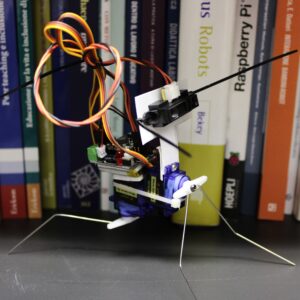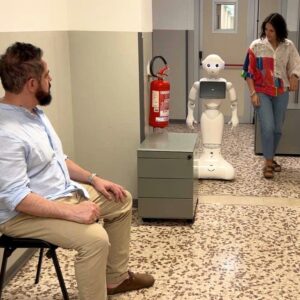There are currently two active lines of research, which are described below. See the two dedicated pages for descriptions of the main results and publications. From 2026 to 2031, the lab’s activities will mainly focus on the RiLS (Robots in Life Science) project, which aims to explore the potential contributions of robots to cognitive and neural sciences.

What can robots offer to the study of cognition?
Since the cybernetic era, robots have played epistemic roles, being used as tools to test and discover theories about the cognition and behaviour of living systems. Is this strategy methodologically sound? Within the RiLS project (“Robots in the Life Sciences”, funded under the FIS3 Program), we subject the ‘understanding by building’ approach to philosophical scrutiny. We address questions pertaining to the philosophy of science, focusing on the relationship between theory and experiment in biorobotics, the explanatory potential of robotic models, the notion of robotic simulation, the structure of cognitive theories.

How do people understand robots?
We are developing original conceptual frameworks for studying people’s mental models of robots. We are investigating the concept of the ‘folk ontological stance’ and using the distinction between ‘belief’ and ‘acceptance’ to examine people’s rational convictions about the minds of robots, as well as their instinctive beliefs. Our studies examine the attribution of false beliefs to non-humanoid robots and how cultural profiles influence implicit anthropomorphism.

